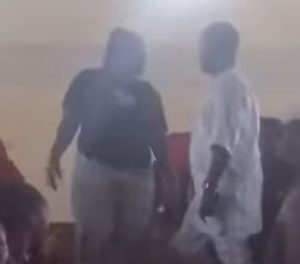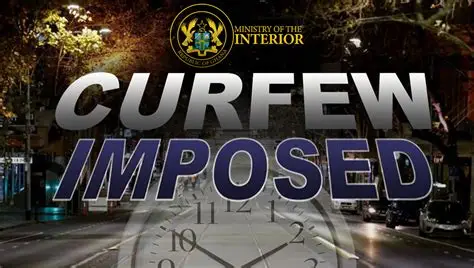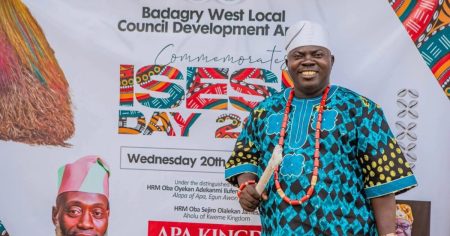The Savannah Region of Ghana, specifically Bole Township and its surrounding areas, has been placed under a strict curfew following escalating chieftaincy disputes that have ignited violence and unrest. Commencing on Wednesday, August 27, 2025, the curfew mandates a nightly lockdown from 6:00 p.m. to 6:00 a.m. This decisive action, authorized by the Minister for the Interior on the advice of the National Security Council and formalized through an Executive Instrument, aims to quell the escalating tensions and safeguard lives and property in the affected areas. The recent clashes in Gbiniyiri, a farming community within the Sawla-Tuna-Kalba District, underscore the severity of the situation, where land disputes have metastasized into deadly confrontations, leaving a tragic toll of at least six fatalities and eighteen injuries. The violence has also triggered widespread displacement, forcing families to flee their homes and resulting in substantial property damage.
The epicenter of the conflict lies in the simmering land disputes within Gbiniyiri, which have fueled inter-communal tensions and erupted into violence. The chieftaincy disputes, a complex web of historical grievances and power struggles, have exacerbated the situation, adding fuel to the fire of existing land-related conflicts. The resulting clashes have not only claimed lives and caused injuries but have also shattered the social fabric of the community, displacing families and creating a climate of fear and uncertainty. The government’s imposition of the curfew is a direct response to this volatile situation, aiming to restore order, prevent further bloodshed, and create an environment conducive to peaceful resolution.
The humanitarian consequences of the violence are significant, with numerous families displaced and seeking refuge. The Ghana Red Cross Society has responded swiftly to the crisis by establishing a temporary shelter at the Sawla District Police Headquarters. This facility provides a crucial haven for vulnerable women and children who have been forced to flee their homes in Gbiniyiri and neighboring communities. The shelter offers immediate relief and support, providing a safe space amidst the ongoing turmoil. The Red Cross’s intervention underscores the urgent need for humanitarian assistance in the region, as displaced families require basic necessities, medical care, and psychosocial support to cope with the trauma they have experienced.
The government has implemented a comprehensive set of security measures to address the escalating crisis. A complete ban on firearms, ammunition, and all offensive weapons within Bole Township and its surrounding areas is now in effect. This decisive measure aims to prevent further violence and ensure the safety of residents. The Interior Ministry has issued a stern warning that any individual found in possession of prohibited items will face arrest and prosecution. Furthermore, residents have been instructed to refrain from pair riding on motorbikes throughout the day, a precaution aimed at curbing potential attacks and enhancing security.
In addition to the restrictions on movement and weapons, the government has also prohibited the wearing of war regalia. This measure is crucial in preventing further provocation and mitigating the risk of renewed clashes between rival factions. War regalia often serves as a symbol of identity and allegiance, and its display during times of conflict can escalate tensions and incite violence. By banning the wearing of such attire, the government aims to de-escalate the situation and promote a more peaceful environment. These combined measures – the curfew, the weapons ban, and the prohibition of war regalia – are designed to create a security framework that limits the potential for further violence and protects the community.
Beyond the immediate security measures, the government is actively pursuing a path of dialogue and reconciliation. A call has been issued to chiefs, opinion leaders, youth, and all residents to prioritize calm and peaceful resolution. The emphasis on dialogue underscores the government’s commitment to addressing the root causes of the conflict and fostering long-term stability. Community leaders, recognized for their influence and respected within their communities, have been urged to leverage their authority to promote peace and encourage dialogue among the conflicting parties. Their role is vital in bridging divides, fostering understanding, and guiding the community towards a peaceful resolution of the underlying disputes. The government’s multi-pronged approach, combining security measures with a commitment to dialogue and community engagement, reflects a comprehensive strategy to address both the immediate crisis and the long-term challenges facing the region.














